A Study on Japan's Aggression Against China and the Nanjing Massacre from the Perspective of Community of Common Destiny for All Mankind: Chinese and Foreign Scholars Shared their views
A high-level forum on the history of the Nanjing Massacre was held in Nanjing on August 10, jointly sponsored by the Memorial Hall of the Victims in Nanjing Massacre by Japanese Invaders and the school of history of Nanjing university, supported by the Research Institute of Nanjing Massacre History and International Peace and Institute for History Research of Nanjing Massacre by Japanese Invaders.
The theme of the forum is "War and Peace: A Study on Japan's Aggression Against China and the Nanjing Massacre from the Perspective of Community of Common Destiny for All Mankind". Nearly 80 experts and scholars from nearly 30 universities and research institutes at home and abroad, 5 archives and museums (memorial halls) brought 45 papers, on topics including the history of the Nanjing Massacre, the history of the Anti-Japanese War, China-Japan relations, peace studies, war memories and international order. The papers were rich in historical materials, rigorous in discussions and novel in viewpoints.
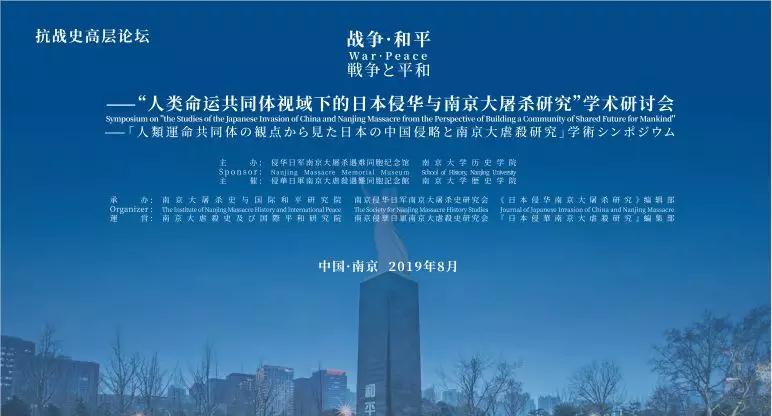
Attending the forum are overseas guests including Hiro Tanaka, honorary professor of Ichibashi University, Japan, Shin Hiroichi and Taishi Mukoda, professors of Ritsumeikan University, Japan, Taishi Shoji, professor of Kobe Foreign Studies University, Mr. Lin Boyao, an overseas Chinese in Japan and a representative of China-Japan Exchange Promotion Association, Kudo Sakamoto, secretary general of the “Symposium on Never Let Nanjing Tragedy Repeat Itself” and Professor Qiu Peipei at Department of Chinese and Japanese Language and Literature at Vassar College, domestic scholars from Chinese Academy of Social Sciences, Nanjing University and other colleges, universities and research institutes. Experts from the Second Historical Archives of China, the Archives of Jiangsu and Exhibition Hall of Evidences of Crime Committed by Unit 731 of the Japanese Imperial Army, reporters from Wen Wei Po, Ta Kung Pao and China Social Sciences Today, as well as reporters from Nanjing, Jiangsu Province also attended the forum.
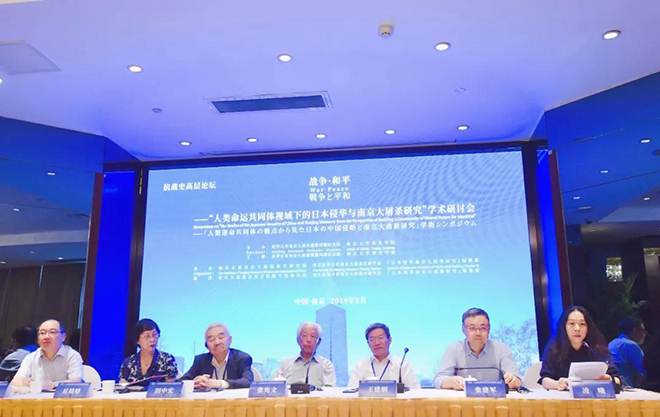
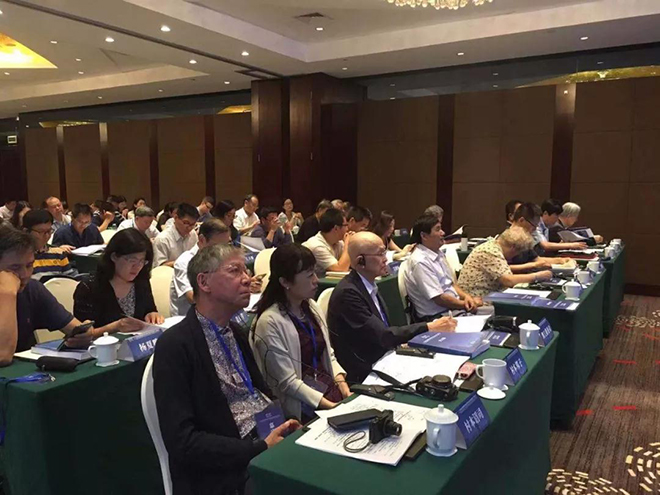
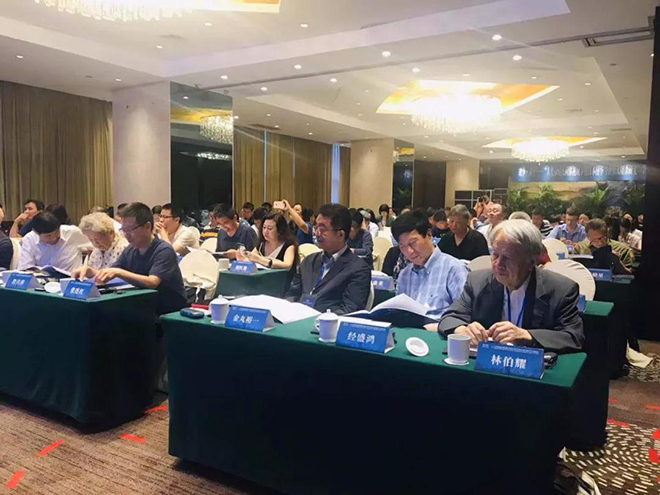
The forum was held in Yishiyuan, Jiangsu Province, which used to be a guest house for overseas Chinese in the Republic of China. During the Nanjing Massacre, it was a refugee shelter in the Nanjing Safety Zone, where international friends and Chinese compatriots conducted humanitarian relief activities.
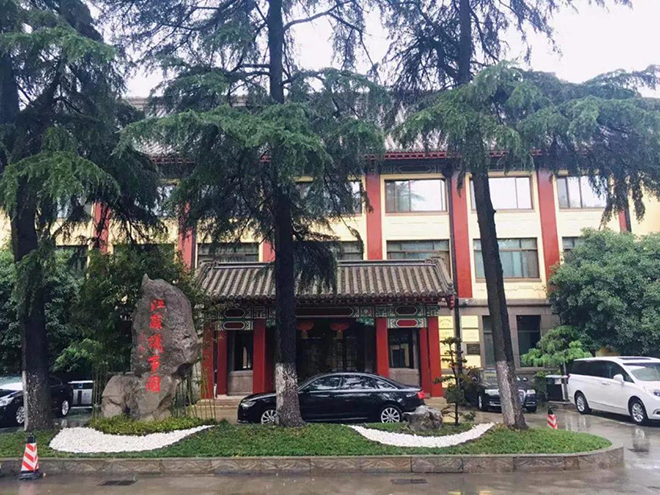
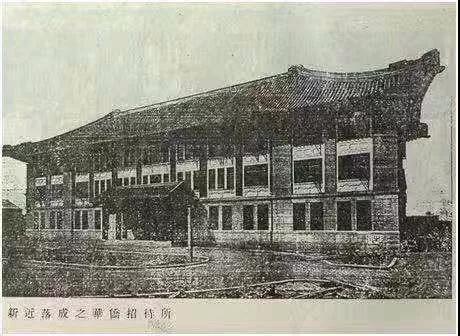
Zhang Jianjun, curator of the Memorial Hall of the Victims in Nanjing Massacre by Japanese Invaders, director of the Research Institute of Nanjing Massacre History & International Peace delivered a speech in the opening ceremony:
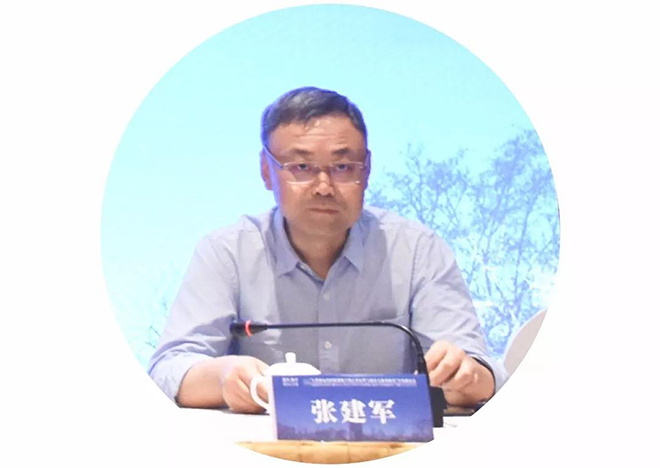
"At present, studies on the history of the Nanjing Massacre and related topics have entered a new stage that links the past and the future. We should not only inherit the achievements of more than 40 years of macro research, but also from multiple perspectives such as interdisciplinary research and micro research, delve deeply into the historical facts, constantly clarify the historical details and tell the historical stories well. We are willing to work together with you, the experts and scholars, further expand the vision of research, constantly improve the interdisciplinary and three-dimensional studying ability of multiple points of view, combining the basic research and applied research, promote the exchange of different types of research results. From the angle of historical reflection on war, as well as a global perspective on peace, we will make the academic prosperity promote historical facts, make peace research promote peace practice, and to remember history, cherish the idea of peace."
Zhang Xianwen, honorary senior professor of Nanjing University, director of the Research Institute of Nanjing Massacre History & International Peace delivered a speech:
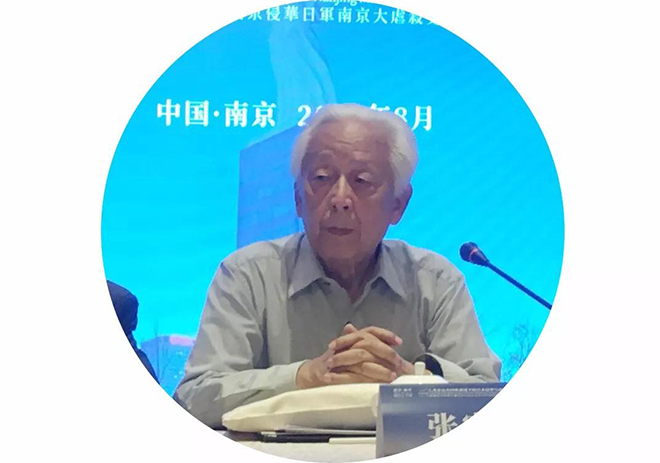
Zhang Xianwen
"The Nanjing Massacre is a historical event. In our research, we should fully adhere to the basic morality of human beings, and at the same time, we should adhere to rational scientific research methods, strengthen our bonds with the research on the Anti-Japanese War and on peace. Nanjing has become the first city in China to join the International Cities of Peace. It’s worth thinking how we can make Nanjing a truly city of peace."
Professor Wang Jianlang, director and researcher at the Institute of Modern History of Chinese Academy of Social Sciences delivered a speech:
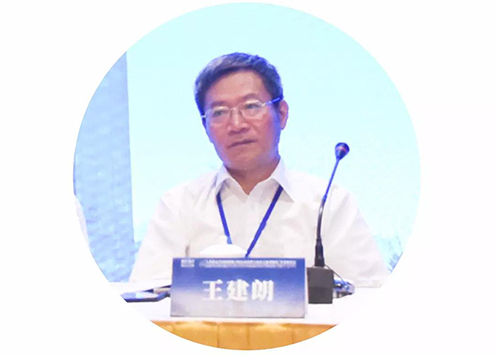
Wang Jianlang
"War and peace is a very big topic. We study war for peace, not to remember hatred. We reveal the cruelty of war in order to stay away from war, from an emotional view, and prevent war from happening again, from a rational view. This is the route taken in the study of the history of the Nanjing Massacre, which has been well received by scholars at home and abroad. All Japanese friends present here have made great contributions to the study of the history of the Nanjing Massacre and are the conscience of Japan. You all share the same goal and work together for peace."
After the opening ceremony, six experts from China, Japan and the United States delivered keynote speeches respectively.
Zhang Sheng, director of School of History of Nanjing University, president of Institute for History Research of Nanjing Massacre by Japanese Invaders
Space Production and Reproduction: From Nanjing Massacre to Memorial Hall of the Victims in Nanjing Massacre by Japanese Invaders
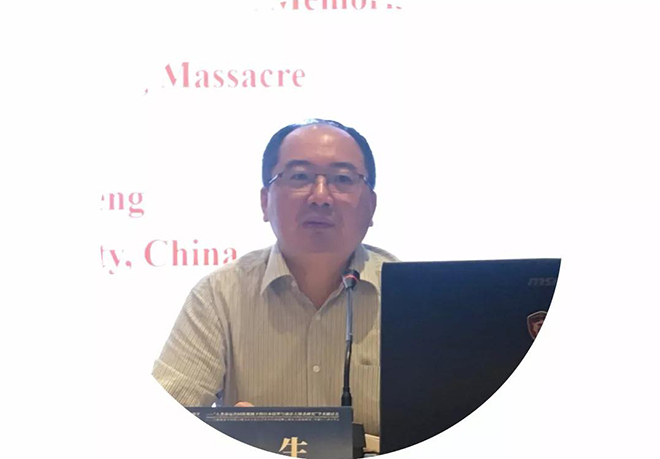
Zhang Sheng
“The Nanjing Massacre was committed in a certain space during the militarist Japan's invasion in China. The massacre of Chinese soldiers who laid down their arms and ordinary civilians was a plot of Japanese imperialism to establish its colonial rule order.
In the space of the Nanjing Massacre, foreign nationals carried out local space production, which generated huge humanitarian value and had worldwide significances.
After the war, under the background of Japanese right-wing forces beautifying the war of aggression and denying the historical facts of the massacre, the Memorial Hall of the Victims in Nanjing Massacre by Japanese Invaders carried out spatial reproduction based on the historical heritage to express the war memory and the concept of peace of Chinese people.”
Hiro Tanaka: honorary professor of Ichibashi University, Japan
The Distant and Close View of the History of Nanjing Massacre
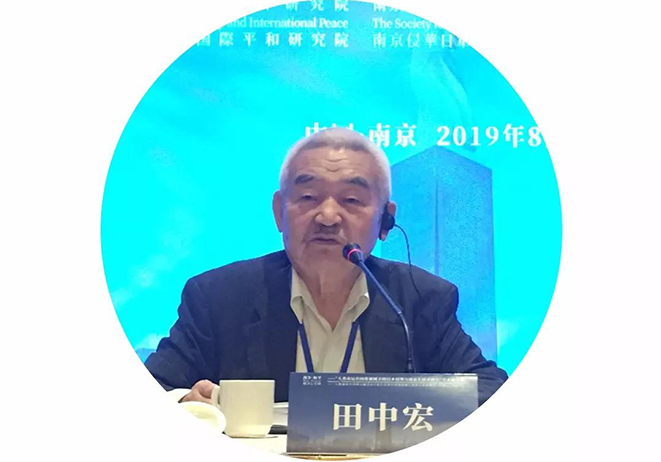
Hiro Tanaka
"I was born in the year of the Nanjing Massacre. The year Japan declared defeated I was in third grade. In the mid-1950s, I entered the university to study Chinese. In August 1964, I was given a chance to visit China. I came to Nanjing that year. On a raised platform with a view of the Yangtze River, I was told that the river had turned into deep red during the Nanjing Massacre. I was shocked. Japan should not avoid the disgraceful history of its aggression against China, and it should reflect on its previous mistakes.
For decades, I have been dedicated to telling the Japanese people the historical facts of the Nanjing Massacre. I have participated in many Japanese civic organizations, including the “Symposium on Never Let Nanjing Tragedy Repeat Itself".
Qiu Peipei: professor at Department of Chinese and Japanese Language and Literature at Vassar College and author of "Comfort Women in China: Testimony of Japanese Sexual Slaves", the world's first English-language book on victims of the "comfort women" system of the Japanese army
Building Cross-border Memories: A Memorial to the "Comfort Women" in the United States
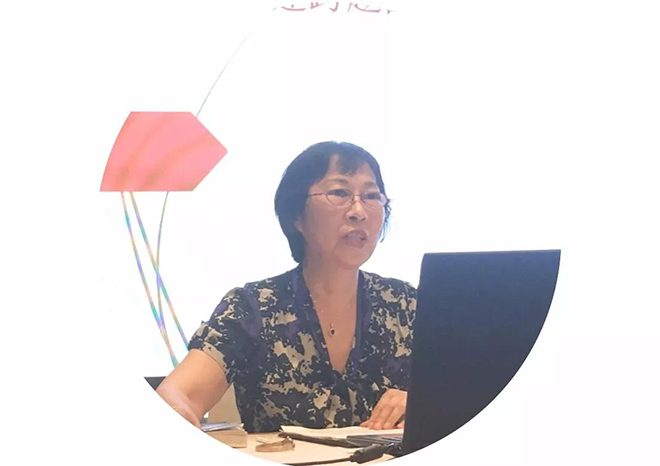
Qiu Peipei
"I investigated the 'comfort women' memorials in Palisades Park, New Jersey, in Glendale, California, and in San Francisco, California as samples. Through the investigation of these 'comfort women' memorials, I’ve found that in recent years, the struggle between commemorating the victims' lives and erasing this dark history has been escalating. I think the 'comfort women' memorial will be a powerful place for history and human rights education. The 'comfort women' legacy will continue to educate us and future generations to prevent further crimes against humanity based on transnational efforts and cooperation."
Wang Yuqiang: professor at Institute of Japan Research, institute of Northeast Asia Research, Jilin University
International Labor Organization (ILO) and Study on "Comfort Women"
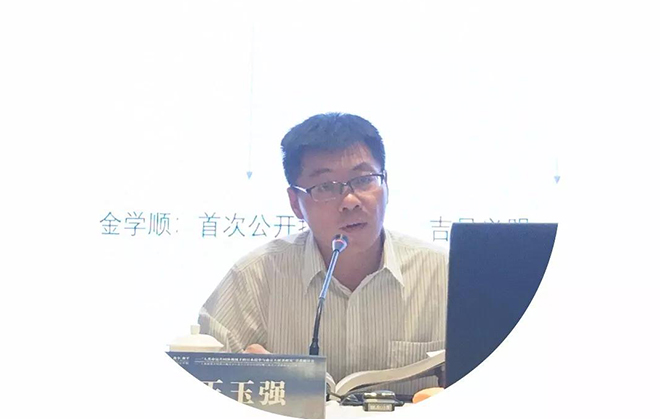
Wang Yuqiang
"From a legal perspective, the Japanese government has always held a position of 'legal settlement' and 'legal irresponsibility' on the 'comfort women' issue, and tried to solve the 'comfort women' issue on this premise. In my opinion, all parties should attach importance to the views of the Expert Committee of the International Labor Organization on the "comfort women" issue, so as to gain in-depth understanding and description of the issue, and to play a role in the future complete settlement of it.
Shin Hiroichi: professor of Ritsumeikan University, Japan
Japanese Christians' "Atonement" During the Sino-Japanese War
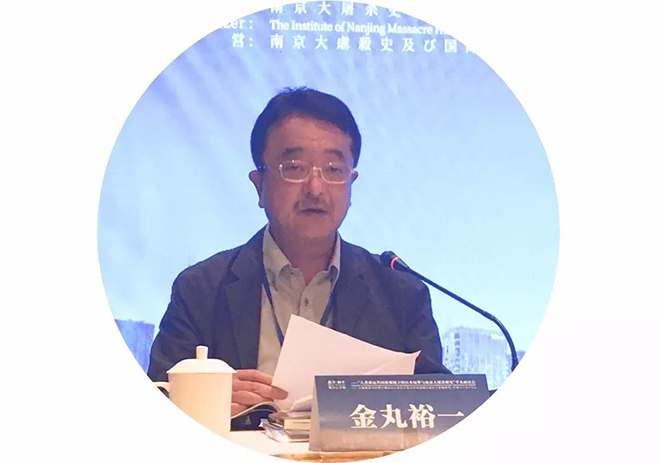
Shin Hiroichi
"I have long been engaged in research on the history of China-Japan relations. I focused on the words and deeds of two Japanese priests, Toyohiko Kagawa and Shimizu Yasuzo, who apologized for Japan's aggression against China. I have deeply explored the relevant historical background of the words and deeds and explored the essence of understanding the history of the Sino-Japanese War from the micro level. I think the lessons learned from this history of failure are the most important lessons for future peaceful exchanges."
Masako Muramoto: professor of Ritsumeikan University, Japan
A Review of the Historical Trauma Healing Program in China and Japan and its Implications for Peace Education
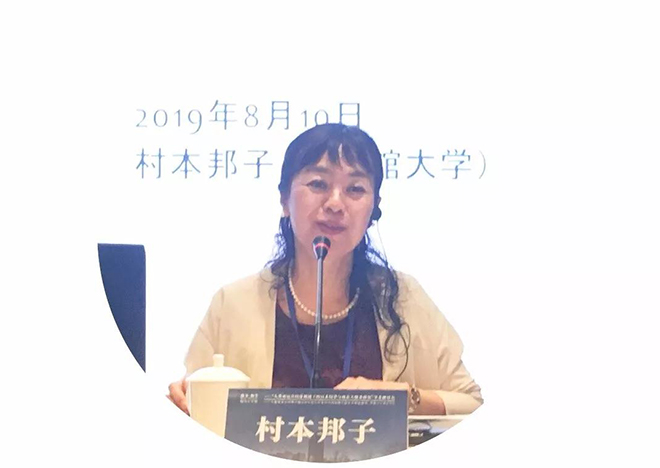
Masako Muramoto
"I am a clinical psychologist who has long studied trauma related to war, sexual violence, abuse, etc., and explored ways to repair trauma by connecting the micro-level trauma with the macro-level social and historical memories. I sorted out the previous research results and thought deeply about the future peace education.
In the course of my research in clinical psychology, I’ve found that some cases of violence in Japanese families are due to their own historical trauma. Although the war was over, they had not resolved the trauma internally. It's a trauma that has been lingering in the shadows, even to the next generation. This requires finding a way to neutralize the psychological damage that would otherwise continue in their offspring.
I’ve taken Japanese young people to Nanjing three times to set up a workshop at Nanjing normal university, so that the children of the perpetrators and the children of the victims could establish a connection. They could act as a guide for peace and re-establish a way of connection."
Young Scholars have Sprouted
In the afternoon, experts and scholars from home and abroad conducted interdisciplinary, multi-angle and three-dimensional discussions and exchanges through team discussions. Young scholars accounted for a high proportion of all the scholars attending the conference. The graduate, doctoral and postdoctoral students from the universities, as well as the young researchers from the research institutes, museums (memorial halls) and other relevant institutions shared their research results. Everyone could see the inheritance of the academic research on the history of the Nanjing Massacre.
Zhang Guosong: associate researcher of the Memorial Hall of the Victims in Nanjing Massacre by Japanese Invaders
Mutual Assistance: A Study on Chinese People and Chinese Groups Involved in Refugee Saving during the Nanjing Massacre
"During the bloody days of the Nanjing Massacre, in addition to the more than 20 foreigners who stayed in Nanjing, our Chinese compatriots stood by each other and supported each other. They have undertaken a large number of specific tasks such as refugee resettlement, food relief, medical assistance and burying the bodies of their compatriots, which should not be forgotten."
Liu Guangjian: staff at the Memorial Hall of the Victims in Nanjing Massacre by Japanese Invaders
A Study on the Atrocities of Japanese Invaders in Sanzao Island, Guangdong Province
"During the occupation of Sanzao Island, the Japanese army committed a number of crimes there, including killing the local people, implementing the 'comfort women' system, promoting education of enslavement, enslaving labor, and establishing a puppet regime. Japan's actions aroused the resistance of the local army and people, and a group of anti-Japanese patriots emerged, undertaking many anti-Japanese deeds.
Li Xin: research fellow at the Institute of Philosophy and Culture of Jiangsu Academy of Social Sciences
The Idea and Path of the International Dissemination of the Nanjing Massacre’s Cultural Memory
"The international dissemination of the Nanjing Massacre’s cultural memory should not be done as a tool. We spread the history and cultural memory of the massacre to the international community, so that it will correctly understand the values of contemporary China, and understand the objective in the process of contemporary China in international affairs and human positions, thus calling for people all around the world to undertake the historical responsibility for the maintenance of world peace."
Shen Lu: professor at School of Journalism and Communication of Nanchang University
On the Creation of Films based on the “Nanjing Massacre”
"To tell the 'Chinese story' of the 'Nanjing Massacre', we must adhere to the value logic and narrative logic that the story should be ‘based on China and belong to the world, be based on historical facts and lead the future'."
Professor Zhang Lianhong, director of the Nanjing Massacre Research Center of Nanjing Normal University, concluded at the closing meeting:
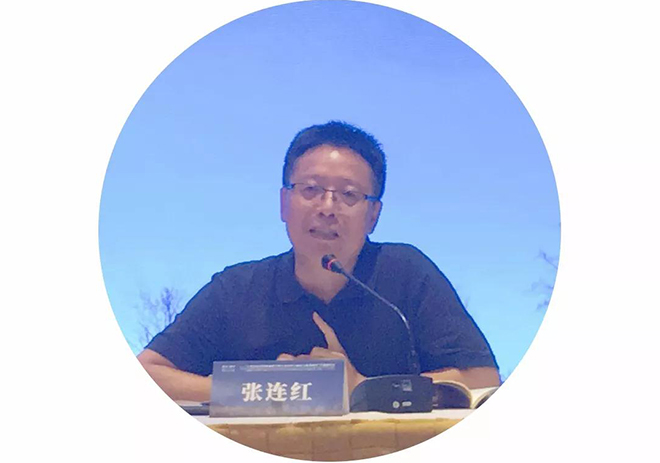
Zhang Lianhong
"War is not only between two countries, but brings trauma to all mankind from the perspective of human beings, and from the perspective of Community of Common Destiny for All Mankind. Only when scholars from all over the world study war atrocities from the perspective of mankind can we work together to prevent atrocities from happening again and bring peace to all mankind. In this sense, today's seminar on ‘Japan's Aggression Against China and the Nanjing Massacre from the Perspective of Community of Common Destiny for All Mankind’ is of great significance.”
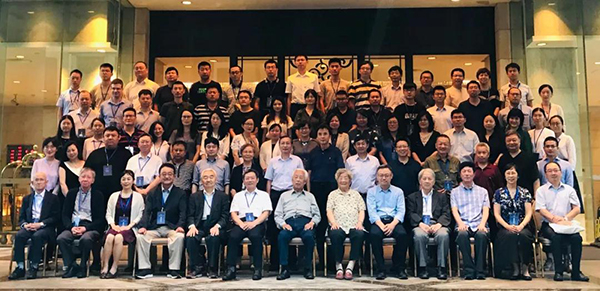
A group photo of experts and scholars attending the high-level forum on the history of the Anti-Japanese War

